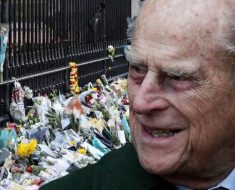
A new city antismoking campaign is highlighting Philadelphians’ stories about quitting to encourage others to do the same.
The initiative is a months-long effort to tamp down tobacco use in Philadelphia, which has one of the highest smoking rates among American big cities. The images of smokers who quit will be featured on television, social media, and radio, and on billboards and posters on the sides of buses through the end of October.
The campaign is aimed at populations that report higher levels of tobacco use. The first wave of ads, to run through September, will feature pregnant women and new mothers, people in recovery, and food-service workers. A second wave will highlight people in the LGBTQ community and veterans. The campaign’s motto: “If I can quit, so can you.”
Regulators are considering a ban on menthol cigarettes, and it could change the way Philly smokes
“I smoked a pack and a half a day for, I want to say, 20 years,” said David Underwood, a trans man who quit smoking cigarettes last year, in a news conference earlier this month. “I knew I would not be able to continue to be a singer and take testosterone and heal from my top surgery while I was a smoker.”
He was among the speakers whose stories are featured in the ad campaign to emphasize that quitting can be done, even if previous attempts have fallen short, and life can look better without nicotine addiction. Camillia Al-Rokh, a restaurant worker, described a flippant attitude in her profession toward smoking.
“After years of not taking this so seriously,” said Al-Rokh, “now I’m taking it much more seriously.”
Another participant, Mike Gnatovskiy, described growing up in a family where most people used tobacco or had other substance-abuse problems. He went through rehab, he said, and ending smoking felt like cutting his last tie to his life with addiction.
“It worked for me, and I know if I could get my word out there maybe that would make a difference in someone else’s life,” he said.
The ads feature the participants at work, at home, and with friends, with cigarettes noticeably absent from between their lips or fingers. They talk about how ending smoking played a role in being a better parent, or as another step on the road to recovery from substance abuse. Posters featuring the participants include tag lines like “I’m just happier and less stressed,” from Al-Rokh, and “My singing voice became stronger,” from Underwood.
“It’s a very positive, uplifting campaign celebrating this enormous step,” said Ryan Coffman, tobacco policy and control program manager with the Philadelphia Department of Public Health.
The campaign cost $450,000, of which $114,500 came from the city general fund. Participants were recruited through focus groups, Facebook announcements, and fliers, and the city will use a social media firm to evaluate the effectiveness of the campaign, Coffman said.
Philadelphia’s high rate of smoking contributes to its having the fifth-highest rate of lung cancer among Pennsylvania’s counties, according to the National Cancer Institute.
“As soon as people quit smoking, their bodies start to heal from the damage,” said city Health Commissioner Cheryl Bettigole.
Annually, tobacco use causes about 3,700 deaths in the city, the health department reported—a greater death toll than COVID-19′s in either 2020 or 2021.
Philadelphia’s antismoking campaign comes as new attention nationally is being focused on the habit’s hazards. The Food and Drug Administration has taken steps to ban menthol cigarettes and Juul, an e-cigarette, and reduce the nicotine content in all cigarettes. The tobacco industry has pushed back, saying it will fight the restrictions, which even if approved would take several years to go into effect.
The city’s campaign is a riff off a CDC initiative called Tips From Former Smokers, a 2012-18 campaign that also highlighted former smokers’ experiences that the CDC credited with preventing 129,000 deaths and saving $7.3 billion in smoking-related health-care costs.
Underwood said quitting smoking did more than help his singing. Being outdoors is now a chance to enjoy fresh air, rather than get a quick smoke. He can work out without becoming breathless, he said, a new experience.
Source: Read Full Article





